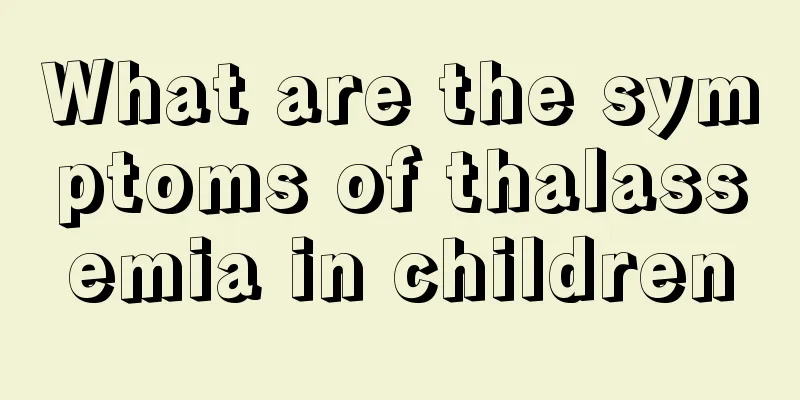The child's lower lip suddenly swells

|
Children are in a critical period of physical development. If they are not careful, they will develop some diseases. Children's physical resistance is very poor, and these diseases are likely to cause harm to their future health. If you notice that your child's lower lip suddenly swells, it is most likely due to cheilitis. There are many causes of cheilitis, which may be an allergy to some food additives or a gastrointestinal disease. Allergic cheilitis is a cheilitis caused by contact with allergens. Allergic cheilitis (angioneuroic edema) and contact cheilitis (contact cheilitis) both fall into this range. Causes The antigens or haptens that cause allergic cheilitis include certain specific foods, food additives, drugs, intestinal parasites, exudates from infection foci, animal and plant inhalants, etc. Trauma, cold stimulation, emotional fluctuations, menstruation, etc. may induce this disease. When the antigen enters the body for the second time, it can trigger a type I allergic reaction. It leads to the release of histamine, slow-reacting substances, etc., causing the expansion of mucosal capillaries, increased permeability of the vessel walls, and tissue edema. Contact cheilitis is a type IV allergic reaction caused by direct contact of the red part of the lips with allergens, such as lipstick, various cosmetics, and certain medicines. Clinical manifestations Allergic cheilitis It is more common on the upper lip, with diffuse swelling and unclear boundaries, and may also affect the nose and cheekbones. The lips are prominent and upturned, tight and shiny, flexible to the touch, and without pitting edema. The skin around the mouth is normal or slightly red. There is no other discomfort except tightness, swelling and mild itching and heat. Other loose tissue parts of the patient's body may also be affected at the same time, such as eyelids, earlobes, scrotum, tongue, pharynx, etc. may also swell. Excessive swelling of the tongue and throat may affect the esophagus and airway, causing difficulty breathing, chest tightness, palpitations, and even suffocation. Lip swelling often occurs suddenly, lasts for several hours, and then gradually subsides without leaving any trace. If the disease recurs repeatedly in the same area, the swelling may persist or not subside completely, making it difficult to return to its original state. Contact cheilitis It is a delayed allergic reaction. Similar lip symptoms often occur after a period of contact with allergens such as lipstick. But there is no swelling in other parts of the body except the lips. The lesions are mainly located on the lips, but can also spread to the surrounding skin. Symptoms are relieved after contact stops, but worsen again when used. The main symptoms in the acute phase are redness, swelling, blisters, erosion and scabs; the main symptoms in the chronic phase are dryness, desquamation, chapped skin and thickening of the mucosa. Chronic recurrent attacks may develop into white spots or wart-like nodules. Chronic contact cheilitis may become cancerous and should be taken seriously. Check Edit The blood vessels and lymphatic vessels in the subepithelial connective tissue are dilated, blood cell exudation and localized edema are seen outside the blood vessels, and there is inflammatory cell infiltration. treat Epinephrine, corticosteroids, and antihistamines are taken orally. Such as chlorpheniramine, cyproheptadine, astemizole, terfenadine, etc., you can choose 1 to 2 types, but be careful not to engage in high-altitude operations, motor vehicle driving, etc. after taking the medicine to prevent accidents due to drowsiness. Traditional Chinese medicine such as Fangfeng Tongsheng Powder and Qingying Decoction can be used to dispel wind and heat, strengthen the spleen and eliminate dampness. If a patient is suffocating due to edema in the throat or tongue, endotracheal intubation or tracheotomy should be performed immediately. prevention Find the allergen and avoid contact. Use lip balm with caution. Related drugs Histamine, epinephrine, chlorpheniramine, astemizole, terfenadine |
<<: What to do if your child always bites his lower lip
>>: Baby's upper body red spots
Recommend
What is the massage method for baby fever
Children have weak resistance, and colds and feve...
What medicine should children take for enuresis? Recommended by authoritative experts
If a child suffers from enuresis, parents should ...
What are the causes of crying when sleeping in eight-month-old baby?
In fact, mothers need to take good care of their ...
Baby coughing before bed
The physical health of children is often the most...
Bacteremia in children
Bacteremia will occur in people of different age ...
Is there any evidence that premature babies are smart?
There is a rumor among the people that premature ...
What causes red, swollen and bleeding gums in children?
In our daily lives, it seems that children do not...
Treatment of red spots on baby's body due to fever
As parents, when our children have a fever and ha...
Causes of oral ulcers in children
Children have relatively poor immunity, so they a...
The child's poop is white
Everyone knows that when children are young, beca...
Symptoms of fish bones stuck in children's mouths
Many people like to eat fish, and there are many ...
What should I do if my child coughs up yellow phlegm?
Children usually have headaches, colds, fevers an...
What to do if baby has red pimples on face
There are many reasons that can cause small red p...
Why does the baby spit bubbles?
Many of the baby’s behaviors are difficult for us...
What to do if your 2-year-old baby vomits in the middle of the night
If a two-year-old baby vomits in the middle of th...









